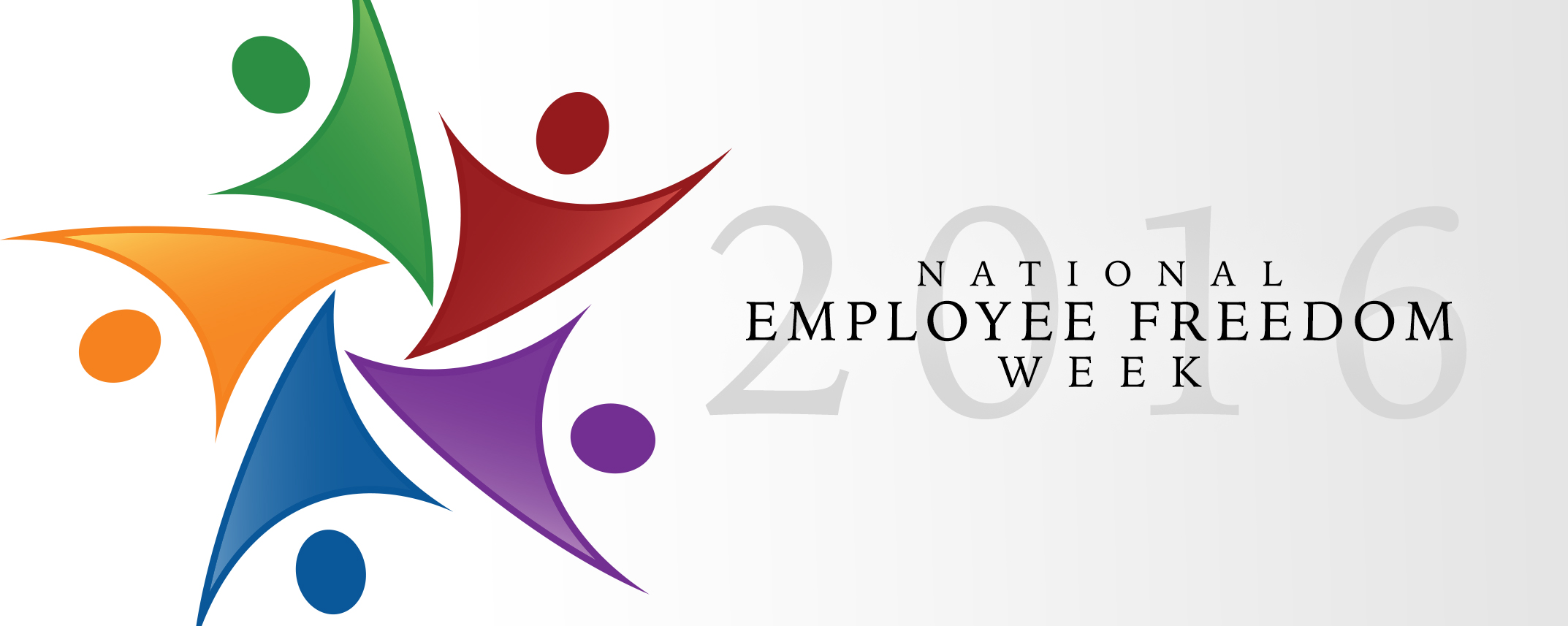August 14-20 is National Employee Freedom Week – a good time for employees to familiarize themselves with their rights when it comes to labor unions.
Labor unions were first formed in the United States in the 1800s as a way of protecting workers’ interests. While the enthusiasm for early private sector labor organizations was spurred by injustices perpetrated by employers, much has changed in the labor movement. The labor movement today is divided into two: private sector unions and public sector unions, and the number of public sector unions is growing while private sector unions are declining.
With this change in the nature of unions comes an increase in nontraditional union activity. Public sector unions don’t function like private sector unions. They don’t have to fight over a profit motive because the government does not pursue profits. In addition, public sector union workers face no competition since the government is a monopoly. These factors contribute to a lack of accountability for public sector union operators. Government unions’ main focus is not to push back against the employer, but instead to use politics make government as big as possible in order to grow their numbers.
The Fundamental Injustice of Mandatory Union Payment
Today’s labor unions’ business model has fundamental injustices associated with it. Public sector unions, as a whole, compel many Americans to fund their union whether they want to or not. This is a violation of Americans’ First Amendment rights. No American should be forced to support a position they oppose, nor should they be forced into an organization they don’t care to join.
Unions operate as a monopoly without the usual consumer protection. Because many Americans are forced to pay for union representation, unions can charge more and be more radical on what they spend their money on. Unions can also make people pay more money in membership dues, and use that money to fund campaigns, initiatives, and politicians that align with the union officials’ political agenda.
One’s right to either support or withhold support is the bedrock of freedom. The freedom to buy a product or decline to buy a product assures the best all-around result. Overcharges are avoided when one can judge the price, and such freedom avoids unpopular or extraneous expenditures.
Courts Agree with Workers – Union Practices Infringe on Rights, and Must Remedy
Workers trapped in this arrangement have objected to union officials’ actions and have consequently taken up their quarrel in court as a way of examining and challenging the fundamental injustices of unions. Such court cases include Abood v. Detroit Board of Education, Chicago Teachers Union v. Hudson, Lehnert v. Ferris Faculty Association, Harris v. Quinn, and Friedrichs v. California Teachers Association, to name a few.
The remedy to union coercion is for employees to exercise their right to either leave their union entirely or at least adopt a status that protects them from having to fully support their union’s activities. In some states, called “right to work” states, the law prohibits forced payment to a private organization providing union services as a condition of employment. These workers can freely leave their union.
However, that is not the case in Washington state, which has a law allowing employees to be forced to purchase workplace services from a union. In a force fee state like Washington, court cases have acknowledged the various injustices and made provision for employees to get around them. In particular, one cannot be forced to fund the political speech or other excessive expenditures.
Workers in Washington can take steps to avoid paying excessive charges for things they don’t support, such as the union’s political agenda, by opting out of membership and instead becoming an “agency fee payer.”
Becoming an agency fee payer requires employees to pay only for the cost of the union’s collective bargaining, contract administration, and grievance adjustment. The money which would have been spent on extraneous spending like politics and ideological causes is refunded or accommodated with a reduced fee.
It is also true that the obligation to financially support union expenditures and conflict may violate one’s faith. A right exists under the Civil Rights Act for religious objectors to donate their dues to charity. Learn more about this here: NRTW.org Teachers in Washington who may have a religious objection to union payment can learn more about their rights here iChooseCharity.com.
Rights that are a secret cannot be exercised
Many cases have established that workers have rights regarding paying the union, but unions are able to get away with continuing such injustice primarily because people don’t know their rights. A current study by the Nevada Policy Research Institute revealed that 32.3 percent of union members in Washington didn’t know they could opt out of paying all or some of their dues without penalty.
National Employee Freedom Week is a national effort to informs folks about their rights and encourage them to exercise these rights against unions who are taking advantage of them. The Freedom Foundation has a long history of helping workers trapped in such an arrangement where union enterprise can take advantage of workers by forcefully taking their money and using it on activities they may not approve of. Public employees who wish to learn more should check out the information at OptOutToday.com
|
Right-to-Work States |
What is $100 worth |
Forced Union Fee States |
What is $100 worth |
|
Alabama |
$113.90 |
Alaska |
$94.61 |
|
Arizona |
$103.73 |
California |
$88.97 |
|
Arkansas |
$114.29 |
Colorado |
$98.04 |
|
Florida |
$100.91 |
Connecticut |
$91.91 |
|
Georgia |
$108.70 |
Delaware |
$98.14 |
|
Idaho |
$107.07 |
Hawaii |
$85.62 |
|
Indiana |
$109.41 |
Illinois |
$99.30 |
|
Iowa |
$110.74 |
Kentucky |
$112.74 |
|
Kansas |
$110.25 |
Maine |
$102.99 |
|
Louisiana |
$109.41 |
Maryland |
$90.66 |
|
Michigan |
$106.27 |
Massachusetts |
$93.37 |
|
Mississippi |
$115.34 |
Minnesota |
$102.46 |
|
Nebraska |
$110.38 |
Missouri |
$111.86 |
|
Nevada |
$102.35 |
Montana |
$106.16 |
|
North Carolina |
$109.05 |
New Hampshire |
$95.06 |
|
North Dakota |
$109.29 |
New Jersey |
$87.34 |
|
Oklahoma |
$110.99 |
New Mexico |
$105.26 |
|
South Carolina |
$110.50 |
New York |
$86.43 |
|
South Dakota |
$113.64 |
Ohio |
$111.98 |
|
Tennessee |
$110.86 |
Oregon |
$101.01 |
|
Texas |
$103.52 |
Pennsylvania |
$101.83 |
|
Utah |
$103.09 |
Rhode Island |
$101.32 |
|
Virginia |
$97.47 |
Vermont |
$98.81 |
|
Wisconsin |
$107.07 |
Washington |
$96.34 |
|
Wyoming |
$103.95 |
West Virginia |
$112.49 |
* The table below shows the purchasing power of $100 within each state.
This table lists whether a state has chosen to allow or prohibit forced union payments, often called “forced fee” or “right to work” laws. In a recent New York Times story, the purchasing power of $100 was outlined for all states, and illustrates a correlation between worker freedom and increased purchasing power.












